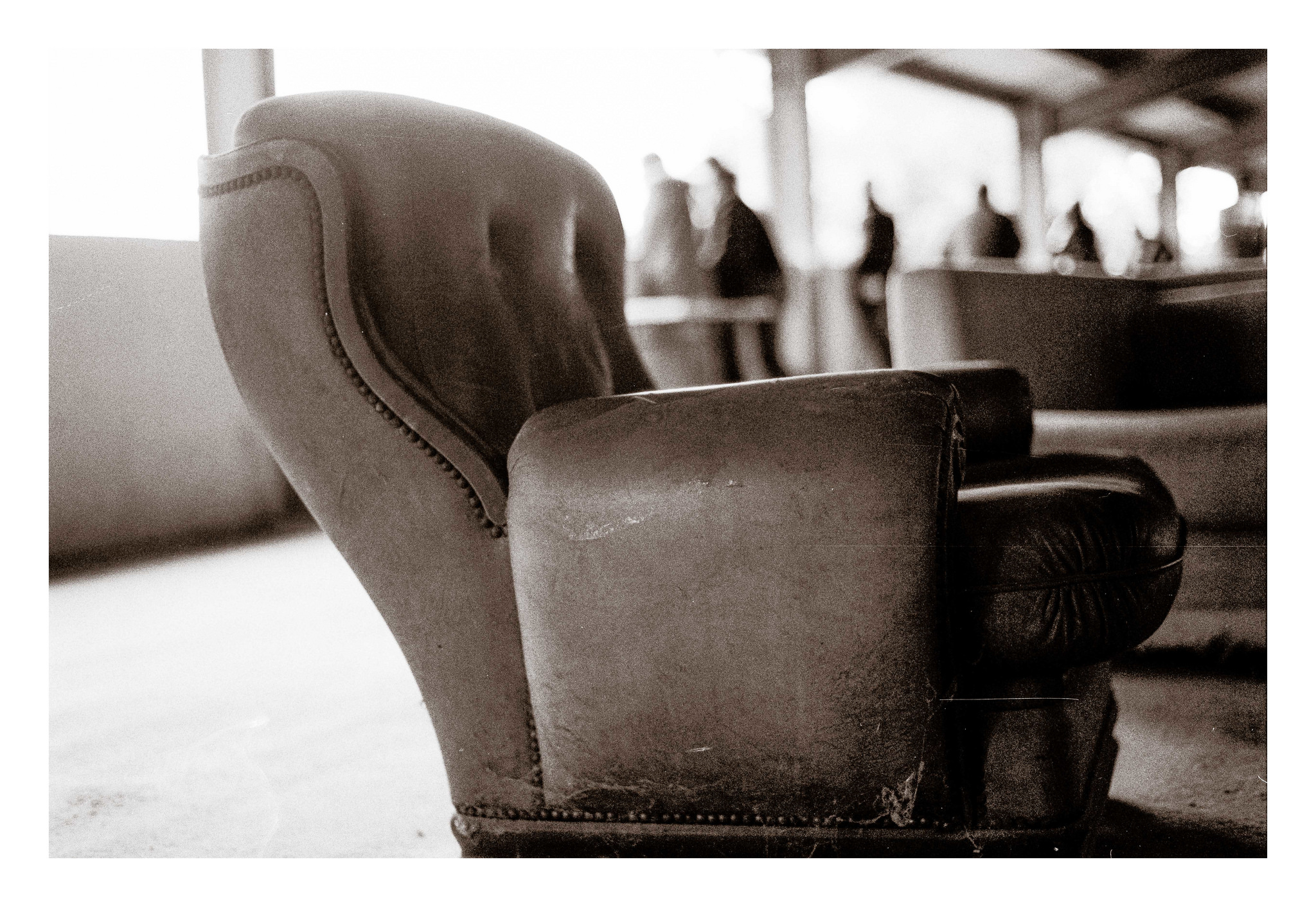With its massive lion-claw feet and its huge bulk covered in worn brown leather, my mother’s old chair was like a mythological beast, hunkering down on the floor. Despite its springs, the webbing drooping underneath like bulging haemorrhoids, and the way it leaked dusty horsehair everywhere, she loved that chair. She was sitting in it for much of her illness and never stopped telling me that it would be mine one day. And then it was.
There were other things when she died, but that great beast was the one thing I couldn’t bring myself to get rid of. It was like an old family retainer, and as such had to be given a place in the home. During the weeks of mourning, I often sat in its comforting embrace. But then I decided to move.
The truth is that the chair simply didn’t work in my new apartment; it took up too much floor space of the living room and, although I hated to admit it, its presence had begun to annoy me. Like an unwanted guest.
I lived with it as long as I could, then I rang a firm that advertised for household effects. The man came round and tried to wander into other rooms. He didn’t want the chair; he said it was too old. The next man didn’t want it either. Nor the one after him. No one wanted it. It was either too big, too old or too unfashionable; too ugly, one of them said. Even the man in the local junk shop refused to take it – and I offered it to him for nothing.
It took me a long time to accept the fact that there was only one place left. No matter how reluctant I was, I had no choice but to take it to the municipal dump.
It was raining that night. The dump was only open for domestic use after 6pm and I was glad that no one would see me lugging my mother’s old friend into the back of my car. I drove up the ramp and was directed to a mountain of rotting rubbish. The rank smell made me nauseous and the rain had turned the ground to slime. A huge, deafening JCB was pushing mounds of human detritus towards a lower level so that lorries could take it away and bury it in landfill. Cars and vans were coming in to deposit ever more garbage. The man in charge shouted at me to unload and get out of the way. But how could I leave it there? It would be like leaving my mother herself in the slime.
So I returned the chair to my living-room. But it really was too big. And now, there was no alternative. I got my handsaw, my trimming knife and my lump hammer from the toolbox. Laid out on the kitchen worktop, they looked like weapons of torture. I had to have a drink before I took the trimming knife and slit the leather beast right down its spine and peeled back the old brown skin. It was so frail and thin, some of the leather falling apart in my hands. I cut out the springs and ripped out the stuffing, filling numerous rubbish sacks with its guts. I stripped that old beast right down to its skeleton of bone-coloured wood.
The dark brown lion-claw feet made it look as though someone had left some fancy boots on a corpse. I had to cut those off with the saw. Then I smashed the frame with the lump hammer, choking down tears all the while.
I’ve still got those feet, roped together and hanging up in my wardrobe, like the pair of blood-stained camel’s feet I once saw hanging outside a Moroccan butcher’s shop. I wish I could get rid of them, but I can’t.
Mel Fawcett lives in London. His stories have appeared in various print and online publications, including Stand, Gemini, Smokebox, Momaya Review, Gold Dust, Litro, Interpreter’s House, and 34th Parallel. You can see him reading one of his stories at the Solid Gold anthology launch here.

